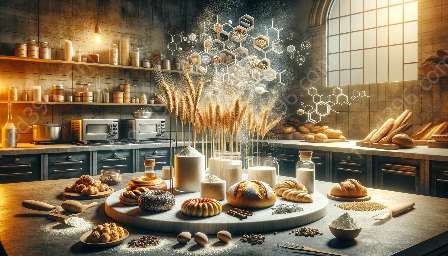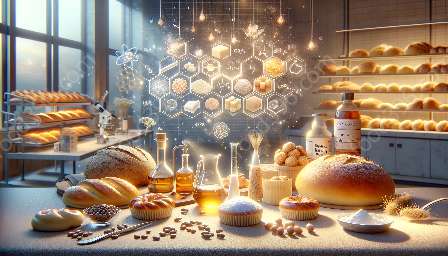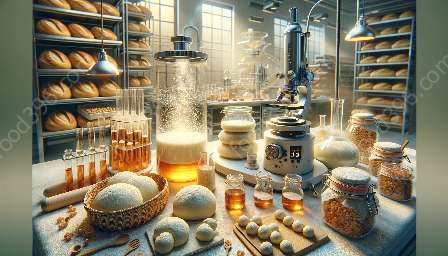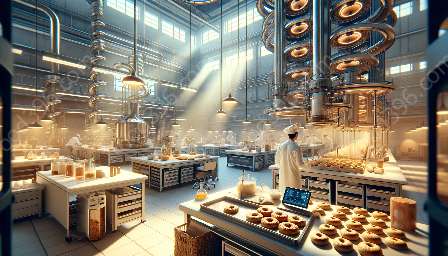Baking is not only an art and science, but it also involves careful attention to food safety and sanitation. In this guide, we will explore the vital aspects of food safety and sanitation in baking, which are crucial for maintaining the quality and safety of baked goods. We will also delve into the connection between baking science & technology and the role it plays in ensuring food safety and sanitation. Lastly, we will discuss how these practices are essential for the overall success of the food & drink industry.
The Importance of Food Safety and Sanitation in Baking
Food safety and sanitation are essential elements in the baking industry to prevent foodborne illnesses and maintain the quality of baked products. Bakers must adhere to strict guidelines and best practices to ensure the safety of the products they produce.
The basic principles of food safety and sanitation include maintaining a clean and hygienic environment, preventing cross-contamination, and ensuring that all equipment and surfaces are properly sanitized. This not only protects consumers from potential health risks but also upholds the reputation of the bakeshop or bakery.
When it comes to baking, the ingredients used and the processes involved can pose unique challenges in terms of food safety. For example, many baked goods contain perishable items such as eggs, dairy, and fruits, which can harbor harmful bacteria if not handled properly. Additionally, the high moisture content in some baked goods creates an ideal environment for bacterial growth if sanitation practices are not diligently followed.
Understanding Baking Science & Technology
Baking science & technology is an intricate field that delves into the chemical and physical reactions that occur during the baking process. Understanding the science behind baking is crucial for producing high-quality baked goods, but it also plays a significant role in ensuring food safety.
During the baking process, ingredients undergo various transformations, such as the denaturation of proteins, gelatinization of starches, and caramelization of sugars. These reactions not only contribute to the flavor and texture of the final product but also impact its safety and shelf life. By comprehending the science behind these processes, bakers can make informed decisions regarding ingredient handling, temperature control, and storage practices to minimize the risk of foodborne hazards.
Furthermore, advancements in baking technology have introduced innovative methods for enhancing food safety and sanitation. For example, the use of ultraviolet light technology for surface disinfection and the development of antimicrobial packaging materials have revolutionized the way bakers can safeguard their products against contamination.
Practical Steps for Ensuring Food Safety and Sanitation in Baking
Now that we understand the significance of food safety and sanitation in baking, let's explore some practical steps that bakers can take to uphold these standards:
- Strict Adherence to Hygiene Practices: Bakers should maintain impeccable personal hygiene, ensure the cleanliness of their workspace, and regularly wash their hands to prevent the spread of harmful microorganisms.
- Temperature Control: Proper temperature management is critical in preventing the growth of bacteria. Bakers must store ingredients at the appropriate temperature and monitor the temperature of their ovens to ensure thorough baking.
- Cross-Contamination Prevention: Bakers should segregate raw and ready-to-eat ingredients, utilize separate equipment for different products, and implement a strict cleaning and sanitizing routine for all surfaces and utensils.
- Quality Assurance and Testing: Regular testing of ingredients and finished products for microbial contamination and spoilage is essential in identifying potential hazards and ensuring the safety of the final goods.
- Education and Training: Bakers and their staff should undergo comprehensive training on food safety protocols, including proper handling, storage, and sanitation techniques.
The Role of Food Safety and Sanitation in the Food & Drink Industry
Food safety and sanitation practices in baking extend beyond the walls of individual bakeries and have a profound impact on the broader food & drink industry. By adhering to rigorous food safety standards, bakers contribute to safeguarding public health, fostering consumer trust, and upholding the reputation of the industry as a whole.
Furthermore, in a globalized market, where consumers are increasingly demanding transparency and accountability from food producers, maintaining high levels of food safety and sanitation is a competitive advantage. Bakers who prioritize these practices not only ensure the integrity of their products but also differentiate themselves in a crowded marketplace, earning the loyalty and confidence of discerning consumers.
Conclusion
Food safety and sanitation are foundational principles that are integral to the art, science, and industry of baking. By prioritizing these critical aspects, bakers can not only deliver delicious and high-quality products but also contribute to a safer and more trustworthy food supply for consumers worldwide. Embracing the connection between baking science & technology and food safety and sanitation is key to shaping the future of the baking industry and ensuring its continued success in the realm of food & drink.




















